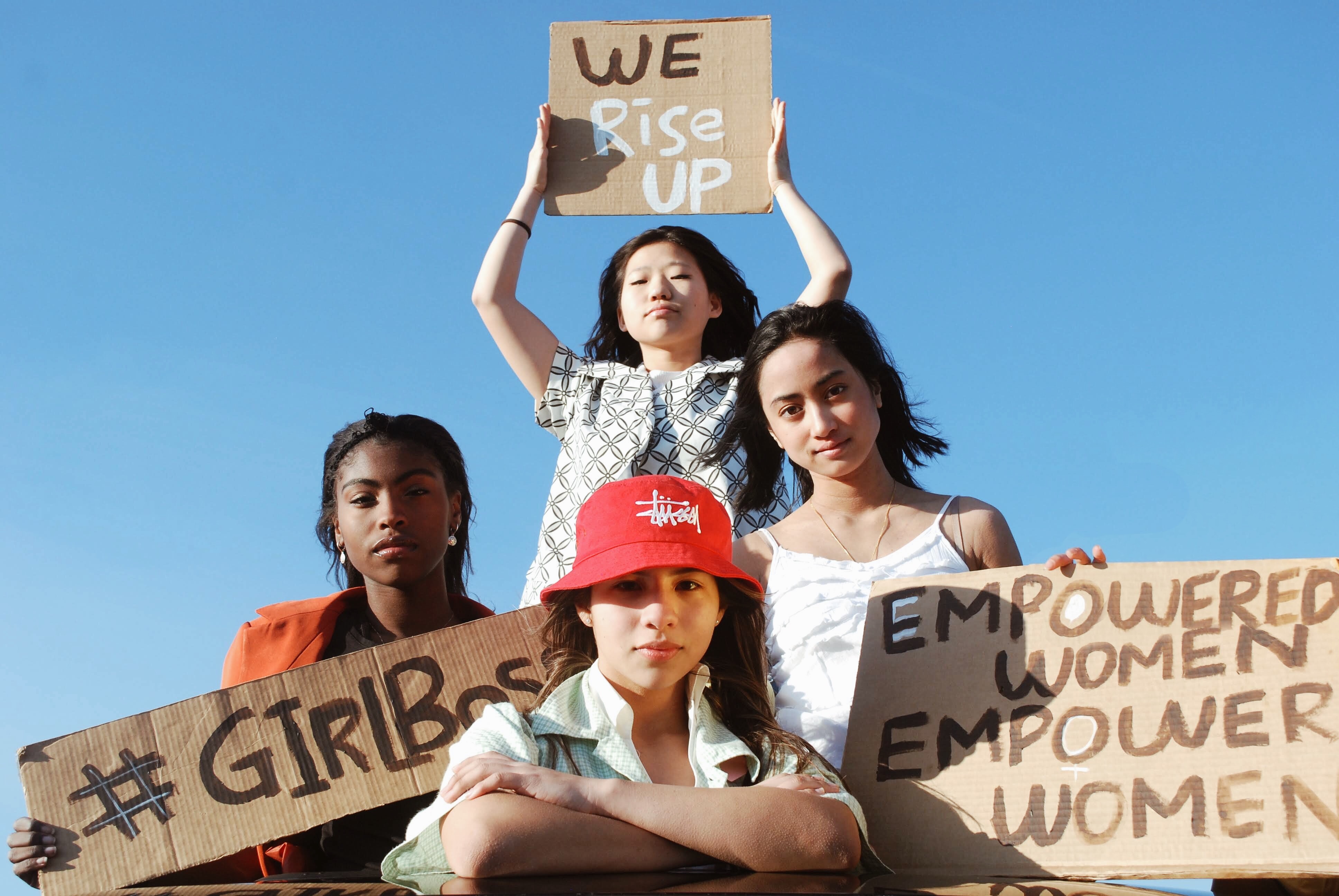The Grammys' new 'African Music' category is a step backwards
On the face of it, a new category exclusively reserved for African music could end the drought of African winners. However, this move is risky precisely because it is exclusive - and so generic.
From global anthems like Miriam Makeba’s ‘Pata Pata’ to Fela Kuti’s heavily sampled tune ‘Water No Get Enemy”, African music has long resonated the world over. But the engagement of the music industry’s most important award - the Grammys - with the African music landscape has always been turbulent.
Since the inception of the awards in 1959, as few as ten African musicians have won a Grammy. After years of complacency, the Recording Academy finally appears to be upending this blatant discrimination against African artists.
On the 13th June 2023, it announcing a new “Best African Music Performance” category to be introduced at next year’s awards. On the face of it, a regular Grammy category exclusively reserved for African music will certainly end the drought of African artists' limited and sporadic recognition at the awards. However, this move is also risky precisely because it is exclusive - and so generic.
It risks simply extending the Grammys’ legacy of racism by promoting the narrative of a homogenous “African” sound as well as syphoning off prominent talent from the ‘main’ awards. What the Grammys should do instead is to begin nominating African musicians in the ‘main’ categories alongside creating multiple, genre-based categories for African artists.
The Recording Academy has historically created the false impression of being progressive. While some, albeit, few, artists of colour have won Grammy awards over time, they are subjected to a flawed voting system that centres “the west” as the locus of popular music while “the rest” are segregated to the margins of racially ambiguous categories. Hence, why the “Big Four” categories like Album of the Year, Record of the Year, Song of the Year and Best New Artist almost always go to white musicians while artists of colour win awards in categories associated with their race like R&B, Urban, Rap or World Music which limits the chances this artists have of winning an award.
If history is to repeat itself, the new African Music category will be victim to the same pitfalls as other racialised Grammy categories by erasing the nuance and complexity of African music
The heavily criticised “World Music” category which African artists have mostly been nominated originates from the ethnomusicological term “World Music”. It was coined in 1987 to market exotic imports from the global majority to the west in a digestible way. Although the Academy recently changed this category to “Global Music” to, in theory, “avoid connotations of colonialism” , the new label did not change the discrimination against non-Western artists in practice.
This revelation makes it unsurprising that African artists have rarely won Grammy awards as non-Western artists from different countries, experimenting with various genres could not fairly compete in a single “Global Music” or “World Music” category where they simply couldn't compare. This results in major snubs, such as Burna Boy’s African Giant album which missed out in 2020 despite being one of the most culturally relevant and commercially successful African albums of all time.
If history is to repeat itself, the new African Music category will be victim to the same pitfalls as other racialised Grammy categories by erasing the nuance and complexity of African music. The Grammys’ claims that a variety of indigenous African genres such as Afrobeats, Alte, Amapiano and Genge will be eligible for the award. However, Grammy awards are almost always awarded to music with the most album sales and chart-topping hits, rather than being based on merit. While sales could be one indicator of merit, it shouldn’t be the divisive factor given that not all talented artists are signed to major labels with marketing budgets and benefit from guaranteed radioplay.
Moreover, voting for these awards is heavily unregulated, meaning that who gets to decide the award isn’t necessarily experts of African music. Any voter can simply log onto the website during voting and vote for whoever they want. Industry insiders have also alleged that voters who work for major labels often vote as a block for a label’s nominee. Therefore, if voting is based on fame and commercial interest, it is highly likely that this category will be dominated by Nigerian musicians. Inadvertently, the African Music award will be synonymous with Nigerian music and Afrobeats, the poster child for African music.
The critique against Nigerian artists’ predicted domination of the African music category does not mean that Nigerian artists deserve any fewer Grammy awards. Rather, African Artists should not be forced to compete in an isolated category when many African genres beyond Afrobeats, and the recently popularised Amapiano from South Africa, do not benefit from Western visibility. Moreover, awarding Nigerian artists with an piecemeal “African Award” will not accurately reflect the massive popularity of Afrobeats around the world.
The racially and ethnically loaded “Best African Music Performance” category raises questions about whether Africans should totally divest from the Grammys
Despite Wizkid’s hit song “Essence” making significant strides for African music such as being the best selling African record of all time in the US, Wizkid was not nominated in any major music category at the 2021 Grammy Awards. When Billboard asked Grammys’ CEO Harvey Mason Jr. why the song was not nominated for “Record of the Year”, he exposed the Grammys’ arbitrary and contradictory decision-making process by saying: “It is a great record. He’s a very talented artist. I can’t speak to why it didn’t make it, but I do really love the record.” This notable snub suggests that the African music award may only serve to further segregate popular African music from the mainstream.
The racially and ethnically loaded “Best African Music Performance” category raises questions about whether Africans should totally divest from the Grammys. The answer isn’t straightforward. As journalist Ivie Ani succinctly put it, “[the Grammys’] matter in the most complicated ways”. As the zeitgeist of music, the awards will continue to shape how music is appreciated and documented for years to come. Beyond cultural recognition, Grammy awards and nominations can also have tremendous commercial impact as nominees can see surges in sales and streams ranging from 4% to 400% after the ceremony.
Instead of adding yet another divisive, racial category to its history of exclusion, the Grammys’ could recognise African artists' contribution to popular music in more subversive ways. As Wizkid’s “Essence” exemplified, African artists nomination in the major categories is long overdue. As Rema’s “Calm Down” featuring Selena Gomez peaked at number three on the Billboard Hot 100 and spent a total of 37 weeks on the chart this year, the song is the shoo-in winner for next year’s “Best African Music Performance” award. Still, the song also deserves to be nominated for major categories such as “Record of the Year” and “Best Pop Duo/Group Performance”. In the long-term, the Grammys’ should create more awards for African music to reflect Africa’s sonic diversity. As Spanish language performers have inclusive genre descriptors like Best Latin Pop Album or Best Latin Rock album, African artists are deserving of specific categories like Afropop, African Dance/Electronic Music, African Alternative/Rock and African Hip-Hop among other categories.
As an African, it feels contradictory to still yearn for a seat at the table the Grammys’ despite the Recording Academy’s history of excluding us. Nevertheless, ignoring the relevance of the Grammys’ as African music influences and shapes modern popular music also feels unfair. I believe two logics can exist simultaneously; a desire to see African artists awarded for their merit coupled by a motivation to topple the Grammys’ cultural hegemony as we build our own industries. When we critique and spark discourse, we begin to divest. Afrofusion legend and activist Angélique Kidjo said it best. “We've got to educate people to understand that it's not just commercial music that is 'music.'
The whole world is watching." It’s time for the Grammys’ to give African music its flowers, more urgently than ever before.
The Lead is now on Substack.
Become a Member, and get our most groundbreaking content first. Become a Founder, and join the newsroom’s internal conversation - meet the writers, the editors and more.





